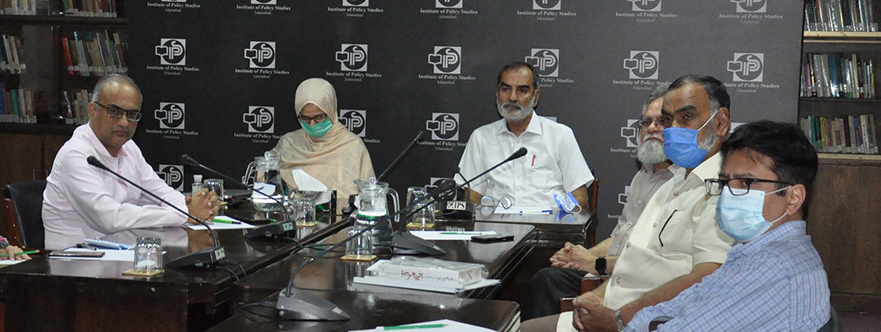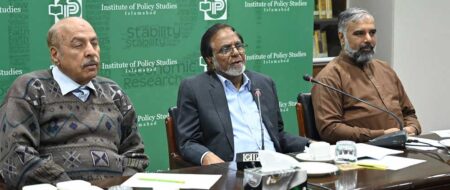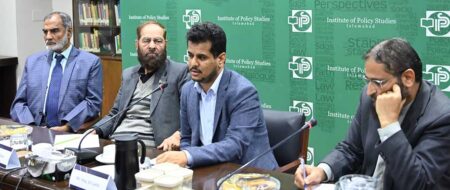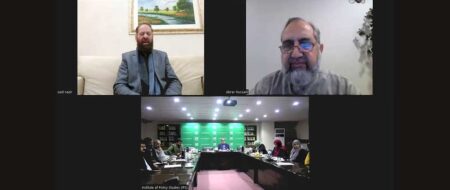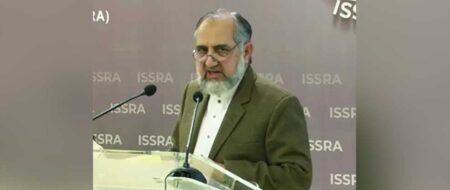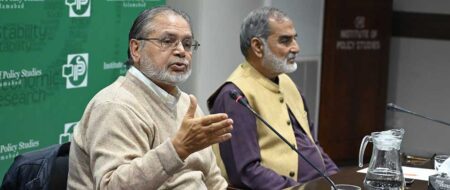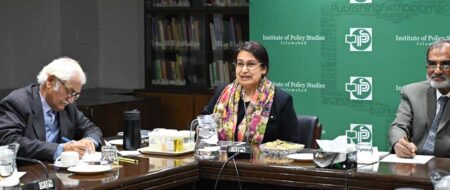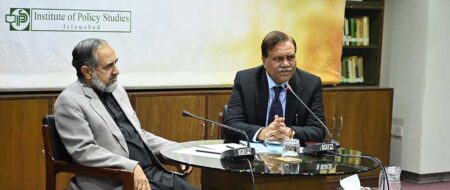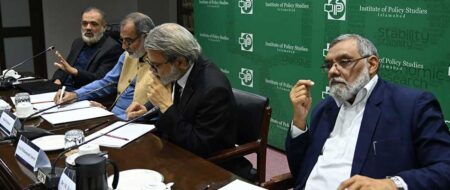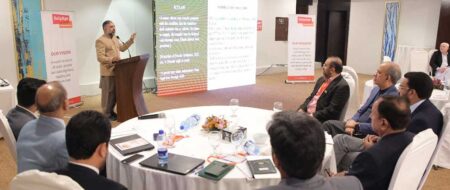Pakistan needs to utilize IHL provisions to support Kashmiris
Pakistan must develop better understanding of international law,
especially international humanitarian law (IHL) and
the UN laws and make intelligent use of various provisions available in them in
order to supplement the Kashmir struggle through more channels than mere moral and
diplomatic support.
The opinion was expressed in the 10th meeting of the IPS’
Working Group on Kashmir (IPS-WGK) which was held on August 11, 2020.
The session was chaired by Executive President IPS Khalid
Rahman, moderated by Farzana Yaqoob, IPS associate and general
secretary IPS-WGK, and addressed by Dr
Sikandar Ahmed Shah, associate professor, LUMS, Ghulam Mohammad Safi, Huriyat
leader, Amb (r) Syed Ishtiaq Hussain Andrabi, Amb (r) Tajammul Altaf, Amb (r)
Syed Abrar Hussain, Amb (r) Ayaz Wazir, Brig (r) Said Nazir Mohmand, Sheikh
Tajammul-ul-Islam, director, Kashmiri Media Services (KMS), Raja Sajjad Khan,
director, Jammu & Kashmir Liberation Cell (JKLC), Shakil Turabi, senior
journalist, and Advocate Nasir Qadri, international law expert from Legal Forum
for Oppressed Voices of Kashmir (LFOVK), among others.
Dr Shah, in his keynote speech, said that Pakistan could have used
international law provisions available in international humanitarian law and
treaty obligations of India to support the indigenous struggle of the people of
Kashmir for the right of self-determination.
“A broader and deeper understanding of international law
framework would have better advocated the Kashmir issue before the world,” he
said.
Shah focused on the law of occupation, which he termed important
from the Pakistani perspective, especially keeping in view its new political
map in which Kashmir has been emphasized as an illegally occupied territory.
The speaker was of the view that any degradation of Kashmir’s
sovereignty, even if it is directed from the Indian constitutional perspective,
would be a violation of the Shimla Declaration. Simultaneously, Pakistan could
invoke provisions associated with the law related to the use of force (jus
ad bellum), the law related to conduct of hostilities (jus in bello)
as well as the international human rights law to expose and target Indian
designs and actions with respect to the State of Jammu and Kashmir and its
people. On the basis of the avenues available in the international law,
Pakistan should develop its military strategy to include ways and means for
self-defense and humanitarian intervention to prevent grave violations of human
rights, war crimes and crimes against humanity by India.
India had invoked UN jurisdiction on the issue of Kashmir under
Chapter VI of the UN Charter, which attempts pacific settlement of disputes,
that gives it perpetuity unless a dispute is settled. Still, however, the
speaker found avenues available for Pakistan to advocate for and to invoke the
provisions of Chapter VII that speak of economic sanctions, blockade, complete
or partial interruption of communication, severance of diplomatic relations and
even use of military option.
The speaker indicted that India has been able to distort the
image of Pakistan and its interest in Jammu and Kashmir through the proactive
use of international law provisions related to terrorism. He pointed out that
the conventions on terrorism could not be applied to the struggle in Kashmir
but India has largely been able to blur the distinctive line between terrorism
and legitimate struggle for the right of self-determination. In fact, Indian
actions qualify more as terrorism but they have to be framed as such by
identifying and tactfully using the scattered relevant provisions in the
international law.
The speaker opined that Pakistan could do more than providing
mere ‘moral support’ for Kashmir, urging the country to develop the
understanding how it can provide military support to the cause. He said that
India was committing a crime against humanity and Pakistan should develop a
military strategy in response as there are certain legal positions it can take
on the use of force which certain states have already done successfully by
making convincing arguments under the international law.
Talking about a more precise articulation of Indian position in
Jammu and Kashmir, Shah said that it was fine to argue that India is illegally
occupying Kashmir, but a more relatable term in the context of IHL would be
‘belligerent occupation’. Similarly, IHL rules and provisions prohibit use of
certain weaponry that is sparingly used by Indian occupying forces in Jammu and
Kashmir, including tear gas.
The participants of the meeting endorsed Shah’s viewpoint,
stressing the need to highlight IHL violations happening in Indian Occupied
Kashmir at international forums effectively. They viewed that Pakistan needs to
fight the Kashmir battle politically, diplomatically, legally, strategically
and even militarily if needed, whereas it should also equip itself to make
effective use of various provisions in international laws for the purpose.
Rahman concluded the session by
emphasizing the need of proper planning and homework to accentuate the Kashmir
issue at international forums while stressing on generating a collective
discourse to understand international laws better within Pakistan as well. He
maintained that this basically was a battle of narratives and Pakistan too
needs to develop a comprehensive roadmap to extend its narrative accordingly,
cogently and persuasively.


